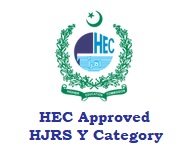Evaluation of the weighted least square based Receiver Autonomous Integrity Monitoring (RAIM) for single frequency GNSS receivers
DOI:
https://doi.org/10.47264/idea.nasij/3.2.5Keywords:
GNSS, GPS, RAIM, integrity monitoring, weighted least square, fault detection, fault identification, faulty measurementsAbstract
Single frequency receivers for Global Navigation Satellite System (GNSS) are low-cost and easily accessible, deeming them cost-effective for commercial applications requiring localization and tracking. However, the positioning solution these receivers provide must conform to desired reliability standards. A reliability check is essential in the signal-degraded environment, where a position fix might be unacceptably inaccurate. Under such conditions, faulty measurements need to be identified and excluded to ensure the system's integrity and get a reliable solution. In this paper, a Receiver Autonomous Integrity Monitoring (RAIM) scheme is devised that employs different tests. The first test performs a global sweep on all epochs and raises the alarm after detecting the fault. Next, a group of tests are performed to identify the satellite responsible for producing the faulty measurements. Once identified, it is then excluded from the measurements to maintain the reliability of the positioning provided by the receiver. The results indicate that a polling scheme based on multiple tests identifies the faulty satellite correctly and minimizes the false alarm rate if either of these tests is performed individually.
Downloads
Published
Issue
Section
License
Copyright (c) 2022 Sunnyaha Saeed, Salma Zainab Farooq, Imtiaz Nabi

This work is licensed under a Creative Commons Attribution-NonCommercial 4.0 International License.
Please click here for details about the Licensing and Copyright policies of NASIJ.








